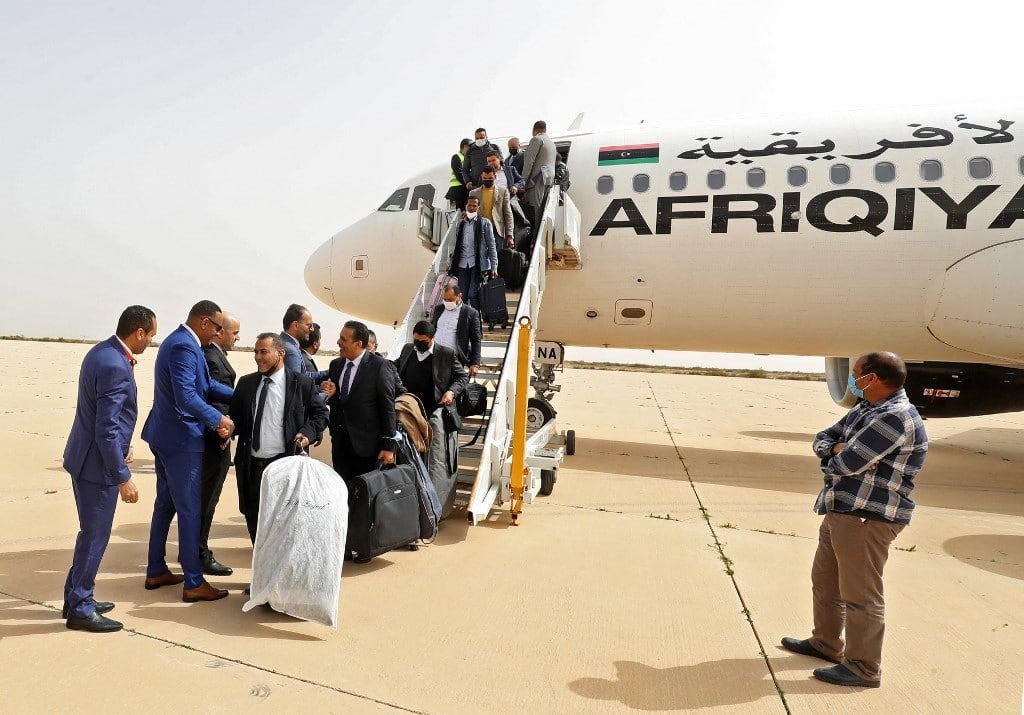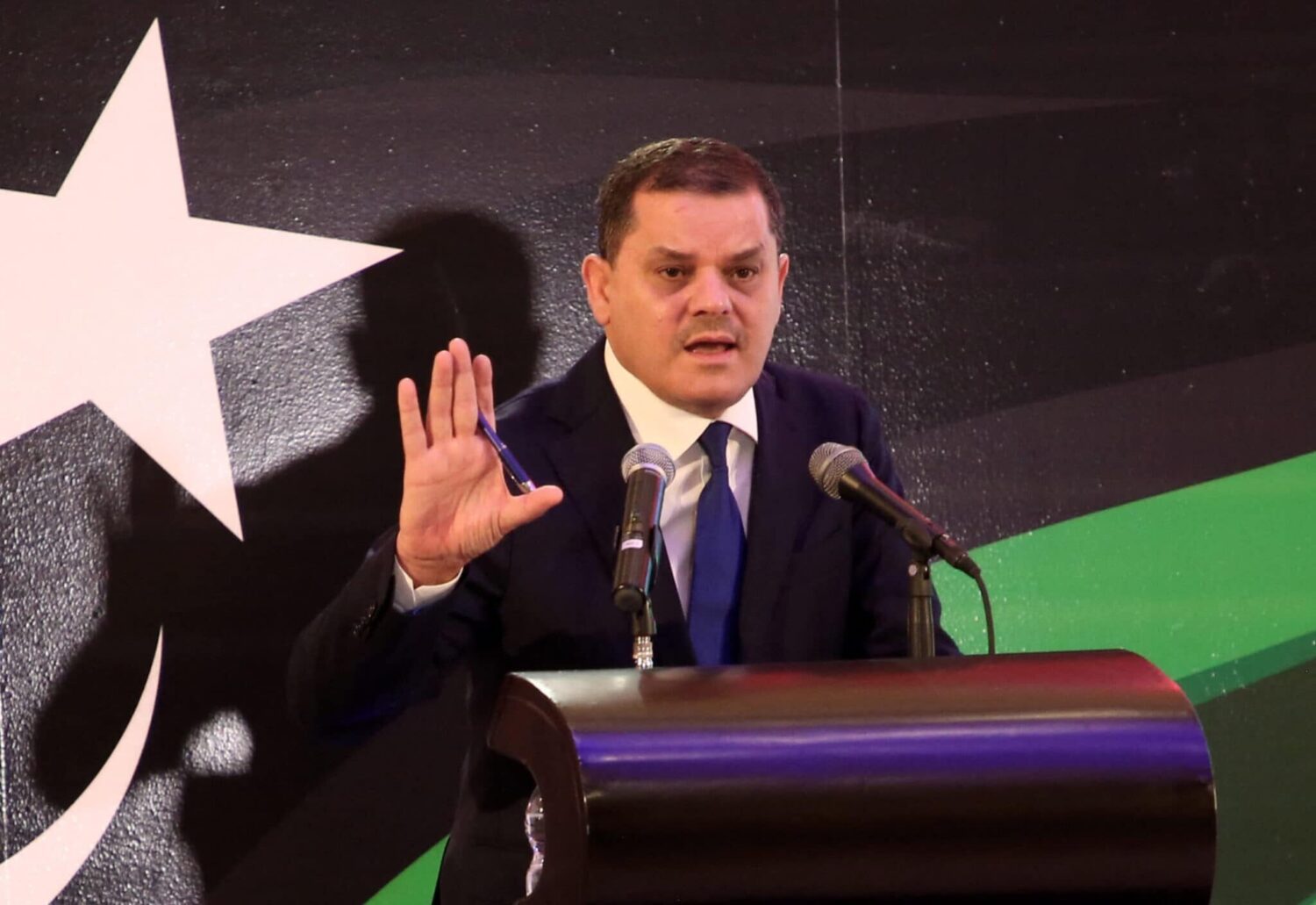
By: Mat Nashed
A U.N inquiry has cast doubt over the legitimacy of the interim government that was elected during the Libyan Political Dialogue Forum (LPDF) last fall. Part of the confidential probe was leaked to AFP, which reported that vote buying lead to the surprise victory of Prime Minister Abd al-Hameed Debiba and President Mohamed el-Menfi. Delegates implicated in the scandal were allegedly paid between $200,000 and $500,000.
The news has spawned a political crisis and damaged the credibility of the United Nations Support Mission in Libya (UNSML), which mediated the dialogue forum in Tunisia.
Zahra Langhi, a member of the LPDF and the co-founder of the Libyan Woman’s Platform for Peace (LWPP), said that she was among a handful of female whistleblowers that pressured UNSMIL to request an investigation into the allegations. The LWPP and fellow human rights organization also issued a written statement to the United Nations Secretary General Antonio Gueterres in November 2020, demanding urgent action to stamp out corruption.
Langhi told Fanack that western ambassadors and UNSMIL were more concerned with expediating the process to secure a political deal than safeguarding the integrity of the dialogue forum.
“We failed miserably to establish a proper vetting mechanism and I wish we paused and learned from our lessons,” she said. “The surprise outcome indicated that there is Libyan ownership over the process despite regional and international pressures, but we did not protect the process from the influence of political money.”
UNSMIL released a statement on March 2, 2021 stating that it does not receive PoE reports and is “therefore not in a position to comment on it.”
The bigger question is why notorious kleptocrats without substantial political weight were invited to the LPDF. One of the most controversial delegates was tycoon Ali Ibrahim Debiba, who is a relative of the designated PM al-Hameed Debiba.
In 2014, Scottish police launched an investigation at the behest of Libyan authorities into whether Ali Ibrahim laundered more than $1 billion in state-funds during the era of Muammar Gaddafi. The British press called the scandal the biggest fraud case ever reported in Scotland.
“Why was a person with an obvious history of embezzlement invited to take part in the LPDF,” said Mohamed Eljarh, an expert with Libya Outlook Research and Consultancy.
Last November 2020, Eljarh echoed public raised concern over credible allegations that Debiba’s supporters were trying to buy votes. However, he said that western ambassadors and people in UNSMIL told him that investigating the allegations was unnecessary since Debiba wouldn’t win. At the time, the global community was expecting delegates to elect another joint ticket: Tripoli’s Interior Minister Fathi Bashagha and the Speaker of the House of Representatives Aquila Saleh.
“Now that Debiba won, the issue of corruption in the entire process is putting the U.N in an extremely difficult position,” Eljarh told Fanack

By refusing to pause the forum until PoE completed its inquiry, UNSMIL repeated the same mistake that sabotaged the Government of National Accord, which was formed out of the Libyan Political Agreement in December 2015.
That government was quickly formed due to external pressure. The U.S desperately wanted to coordinate with an internationally recognized body to combat the Islamic State group in Libya, while the EU were trying to ink agreements to curtail irregular migration. As a result, the GNA failed to acquire legitimacy from powerful players in Libya, leading to parallel institutions and the further internationalization of the conflict. Equally troubling, the GNA brought into power a new political elite that embezzled Libya’s resources over the next five years. Despite protests in the summer of 2020, nobody from the GNA was held accountable for corruption.
PM al-Hameed Debiba is hoping to benefit from the same impunity as his predecessors. His administration has called the corruption allegations “fake news” and demanded the PoE to publish its full report. The LWPP and allied human rights groups are also calling for the U.N to make the full report public, especially now that many of the whistleblowers are being smeared online – a common reality for female human rights defenders in Libya.
The speaker of the House of Representatives (HoR), Aquila Saleh, said that he too preferred to wait for the U.N report before approving Debiba’s proposed cabinet. However, UNSMIL called on Saleh to go ahead with holding a parliament session on March 8 and to consider giving Debiba a vote of confidence. The session took place in the city of Sirte, which is under the control of Field Marshal Khalifa Haftar and hosts foreign mercenaries.
UNSMIL, for its part, just doesn’t want to see its mediating efforts go to waste, though many observers believe that the mission has itself to blame. Tarek Megerisi, a policy fellow at the European Council for Foreign Relations, said that UNSMIL’s failure to protect the integrity of the LPDF indicates how low the global community has set the bar for Libya.
“Could you imagine that the options for a unity government to be formed out of a civil war is between a president that cheered on a 14-month offensive on the capital, and a prime minister that hails from one of the most corrupt factions in the country,” he told Fanack.
The release of the PoE probably won’t be a major game changer. Some rival figures could call for early elections if Hameed Debiba is directly implicated in corruption, while others could push for Bashagha and Saleh – the second-place ticket – to assume power. But judging from history, Megerisi, suspects Debiba to remain the face of the interim government.
“I don’t see the corruption allegations having an impact,” he told Fanack. “There is comfortable impunity for political elites on every level in the country.”


